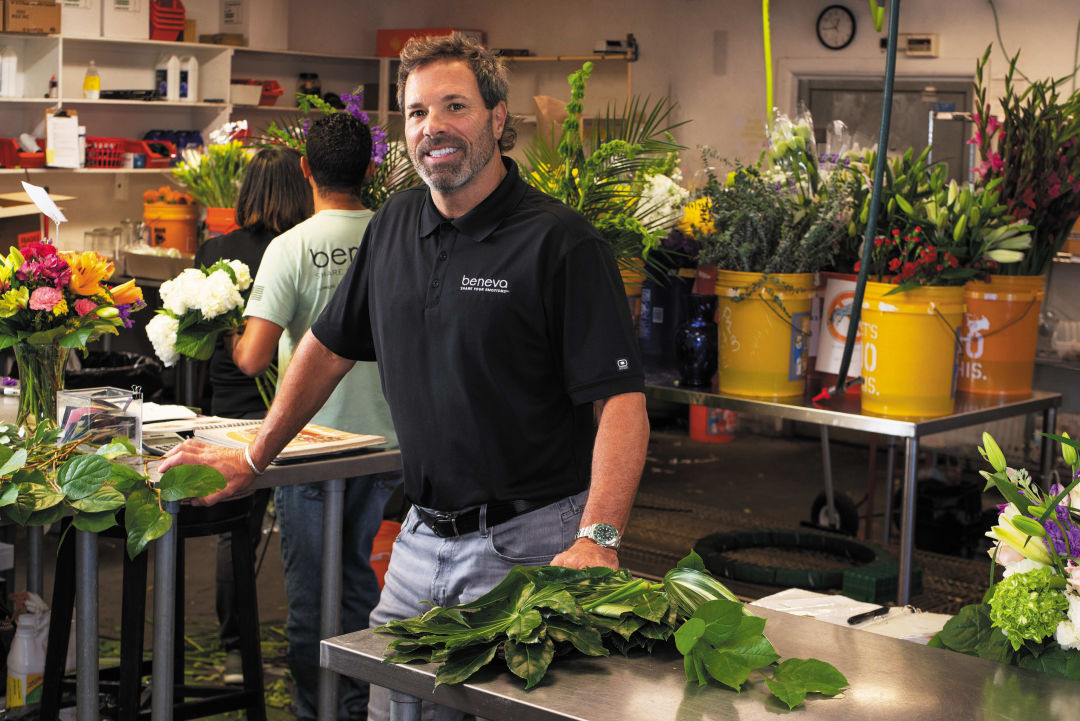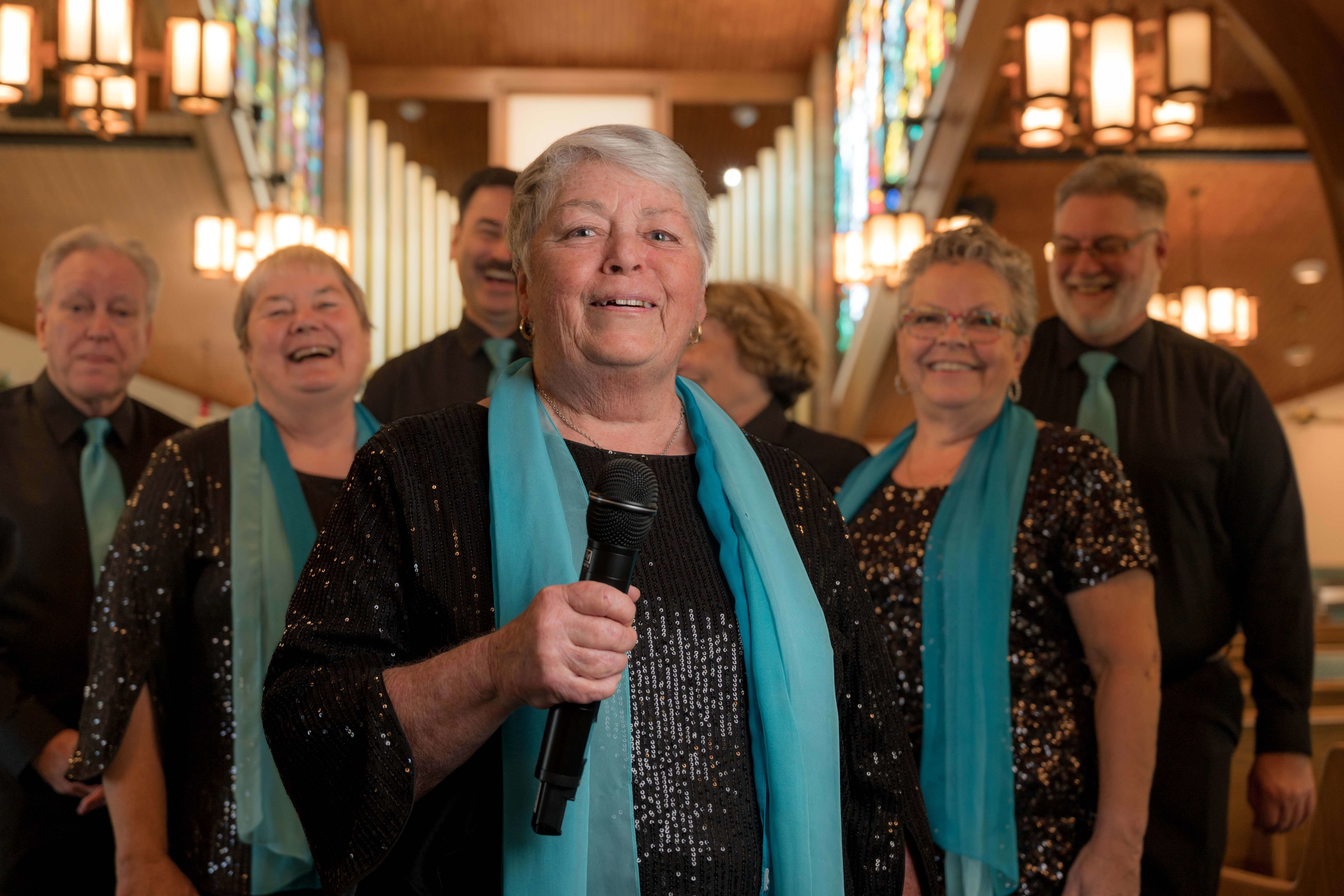David Shuel Helps People Find Work and Support After Being Incarcerated

Image: Alan Cresto
Several years ago, David Shuel hired a man named Lonnie Martin to work at Beneva, the flower shop and events business he’s owned since 2015. (The company was called Beneva Flowers for many years.) Unbeknownst to Shuel, Martin at the time was living in a home run by Project 180, a Sarasota nonprofit that helps people who are leaving incarceration rebuild their lives. Martin told Shuel he needed to meet Project 180 founder Barbara Richards and encouraged Shuel to join him and the other residents for dinner one evening, so Shuel went.
“I was hooked,” says Shuel, 54. “I shared my story. They shared their stories—a lot of tears, a lot of laughs, a lot of emotion. It doesn’t matter where you come from, what’s in your bank account or what you do—we were all struggling with the same things.” The next morning, Shuel called Richards and told her he wanted to get involved with Project 180. Shortly afterward, he joined the organization’s board.
Shuel has firsthand experience with the intertwined struggles of addiction and incarceration. He was arrested for domestic violence in 2018 (the case was later dismissed), and he credits the experience for forcing him to get sober after years of alcohol abuse. He says his evening in jail gave him the “gift of desperation” and acted as a wakeup call. “Because of my drinking, I had given up the power to control my freedom,” he says. He vowed to never let it happen again. “It all shifted for me right then and there,” Shuel says. “It saved my life.”
Project 180’s residential program—which has helped around 120 people so far—offers formerly incarcerated men a safe, supportive and sober place to stay, and also helps them with tasks like obtaining a driver’s license and finding work. (People who have committed sex crimes, violent crimes or crimes against children are not eligible to participate.) The goal is to support participants so they do not end up incarcerated again—roughly half of the people in Florida prisons are there for a second, third or fourth time—and to make our area safer for all.
Shuel currently serves as Project 180’s board chair, but even outside of his work with the nonprofit, he’s passionate about offering a helping hand to people who have found themselves entangled with the criminal justice system. While many employers are wary of hiring people with criminal backgrounds, Shuel goes out of his way to give jobs to people with troubled pasts, and has hired more than 20 people through Project 180. Some work at the shop for a couple years and then move on to another career, but a few have stuck around and advanced into leadership roles at the company.
“These guys come here and they’re wounded,” Shuel says. “They’re hurt. They have fear. They’re uncomfortable. Some of them don’t even know how to navigate a cell phone. And we have a ton of compassion, because we’ve been there. We’re patient.
We’re tolerant. We’re forgiving. We’re definitely demanding, but we’re a soft place to land.” Shuel says that being open about his personal history allows Project 180 residents “a chance to be vulnerable, ask for help and not be ashamed or feel inferior.”
Shuel hopes that Beneva can serve as an example for other companies, and encourages other business owners to hire people who have been incarcerated. “They’re resourceful, they have good hearts, they’re hardworking and they’re creative,” he says. “They have all those assets that we all look for in an employee.”



